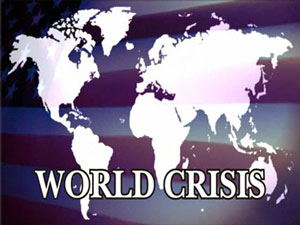
UNITED NATIONS (FinalCall.com) – The United Nations General Assembly convened a major conference on the global financial crisis in late June meetings at its New York City headquarters. Hopes that the UN could play a greater role in alleviating the crisis were dashed as the U.S. and Western nations rebuffed the world body’s attempt to have a hand in reforming the international economic system.

The goal of the “UN Conference on the World Financial Crisis & Its Impact on Development” was to come up with an outcome document that would offer a roadmap out of the financial crisis. “The outcome document will be the first step in a long process for putting the world on a path of solidarity, stability and sustainability,” said General Assembly President Miguel D’Escoto Brockmann.
While the final document includes language on many critical issues raised by developing nations, Western countries stripped the document of most concrete proposals to reform international lending institutions and curb shortcomings in global markets.
The final document was accepted by consensus and must be ratified by the full General Assembly in September. Observers said the General Assembly wanted to use the conference as an opportunity to offer innovative ideas on how to regulate the global financial system. The conference was held June 24-30.
Western opposition to the UN taking the lead on international economic issues was expressed forcefully by the United States. “Our strong view is that the UN does not have the expertise or mandate to serve as a suitable forum or provide direction for meaningful dialogue on a number of issues addressed in the document such as forming reserve systems, and reforming international financial institutions,” John F. Sammis, who serves as alternate head of the U.S. delegation to the United Nations.
During her opening day remarks, Dr. Susan Rice, U.S. ambassador to the UN, said the U.S. “supported increasing resources to enhance the emergency lending capacity of the World Bank.” The World Bank is a pillar of the current global financial order.
The World Bank was created in July 1944 by 43 nations who aimed to rebuild the postwar economy by promoting economic cooperation. The “WB,” as it is called, is the largest public development institution in the world. It lends some $25 billion a year to developing nations.
“What this statement from the Dept. of State means is at the moment the U.S. wants to do things the old way–which is a failed way; again they want to bail out the banks and not the people, and that has always failed,” said Ramsey Clark, former U.S. attorney general and co-founder of the International Action Center, during an interview with The Final Call.
Mr. Clark said the General Assembly must be applauded for its “bold new movement” in meeting its responsibilities. Those responsibilities are covered in the UN Charter, which gives the body power over world economic conditions, he said.
“It is clear that the UN General Assembly is the proper venue, not the G20 or G8. We must act with urgency to stop this tragic cycle of economic boom and bust,” Mr. Clark said. The G8 and G20 are composed of the most developed nations and dominate economic policy. The Group of Eight, created by France in 1975, includes Canada, France, Germany, Italy, Japan, Russia, the United Kingdom, and the United States. The G-20 is made up of the finance ministers and central bank governors of Argentina, Australia, Brazil, Canada, China, France, Germany, India, Indonesia, Italy, Japan, Mexico, Russia, Saudi Arabia, South Africa, South Korea, Turkey, United Kingdom and the United States.
Many delegates attending the UN conference laid the blame for the crisis at the feet of the developed world, saying they have lost confidence in international economic institutions.
“The U.S. and the European Union appear resistant to even exploring structured change, despite World Bank figures showing that $1 trillion is likely to disappear from the treasuries of the poorest nations of the world because of the global economic meltdown,” Raman Mehta, of Action Aide-India told reporters.
Another issue important to many of the delegates was rising unemployment and the final document contained specific references to decent treatment of workers suffering during the crisis. The International Labor Organization counts global unemployment at 1.6 billion, while 100 million people are hungry worldwide.
Developing nations say they cannot deal with social issues while burdened by debts to the World Bank and the International Monetary Fund. UN analysts say developing nations face repayment of more than $3 trillion in 2009.
“As more and more countries are forced to get into more debt just to feed themselves, it is disappointing that rich governments refuse to consider measures which would alleviate the burden and vicious cycle of unsustainable debt,” said Vitalice Meia of the African Forum & Network on Debt and Development.












